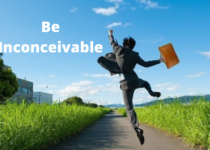The Value of Social Resilience in Your Career Transition – Part of Chapter II of the upcoming book Find Your Passion

The Value of Social Resilience in Your Career Transition – Part of Chapter II of the upcoming book “Find Your Passion” –
As we’ve already underlined, you need to establish the habits necessary for you to improve your resilience, and have a successful transition into a more successful and fulfilling career. Generally, there are many criteria to classify the types of habits. In this book, we’ll divide habits into four main categories, based on the types of resilience. A person can be mentally, physically, emotionally, and socially resilient. Consequently, we have four main categories of habits:
1) Mental
2) Physical
3) Emotional
4) Social
Today, we’ll learn more about the value of habits that build your social resilience. Although we classified these categories separately, keep in mind that these categories are interdependent. That means they complement and are strongly interwoven with one another. Why? Because your mind affects your body, and vice versa; your body affects your mind.
Your social habits are also strongly related to your physical and mental health. Remember: we are social beings. We survive and thrive by helping one another. We share our thoughts and feelings, our ups and downs, our peaks and valleys, our worries and joys, our fears and aspirations. According to the healthcare tech entrepreneur Will Wright, in his 2017 TED talk in Birmingham, UK, “Loneliness puts us at a greater risk of developing diseases. People who are struggling with diseases like diabetes, depression, even cancer, oftentimes got those diseases in large part because they were lonely…Loneliness is as risky to our health as smoking 15 cigarettes per day.”
Furthermore, according to the co-founder of the field of social neuroscience and Tiffany and Margaret Blake Distinguished Service Professor at the University of Chicago, John T. Cacioppo, in his 2013 TEDx talk “The lethality of loneliness”,
“Air pollution increases by 5% one’s risk of premature death. Obesity, 20%. Excessive alcohol consumption, 30%. Loneliness, 45%.” That means that almost one out of two people who feel lonely die early.
Now let’s make an important distinction: Solitude is not loneliness. Being alone does not equate to being lonely. Alone means “having no one else present”, while lonely means “being sad because one has no friends or company” *. In fact, it’s good to spend some quality time with yourself. Because remember that the most important person in your life is you! If you don’t take the time and space necessary to take care of yourself, you won’t be able to contribute and take care of others, including your loved ones. You deserve that time with yourself to discharge, as well as reflect on your choices and life. That’s also the reason why so many people realized during the pandemic that they don’t love their job. The quarantine gave them time to be alone and reflect on themselves. It also gave them more freedom and flexibility at work and raised their career fulfillment standards. I’m sure you might know a few people who had these new insights.
I’ve also been alone by choice in the first two years of my business, because I wanted to focus on my passion. Besides that, when you are an immigrant, your loved ones are likely to be a little bit far. In my case, it was thousands of miles away, although we did leverage the gift of the internet! Did I give chances to new friends? Absolutely. On the other hand, I didn’t feel to hang out at that time. I was, and still am, so driven to inspire other professionals to discover their passion! I was investing in my coaching and business training, writing this book (yes, it took me a while!), and also creating my first career coaching programs! It was the most productive and creative period of my life! Were there times when I felt lonely? Absolutely. It was hard, but not my daily life. Yes, I did feel lonely when I was working on my business and mission on New Year’s Eve. So, remember this distinction.
Should you spend more time with your loved ones if you feel lonely? Absolutely. In fact, you should not wait till you feel lonely to spend time with your loved ones. Social habits are habits, repetitive actions on a regular basis. That’s how you’ll strengthen your social resilience. Plus, you’ll live a longer and healthier life. That’s right. According to Nobel Prize winner and biologist Elizabeth Blackburn, in her TED talk “The science of cells that never get old”, “People who can’t trust their neighbors and who don’t feel safe in their neighborhood consistently have shorter telomeres. The shorter our telomeres, the faster we age.” Besides this, when we snuggle up or bond socially, our brain produces oxytocin, also known as the “cuddle hormone” or “love hormone”.
Yes, science has also demonstrated that we are social beings. Given the current pandemic, I know that this is not the most comforting thing you can hear. Don’t think this way. On the contrary. It’s a unique opportunity for you to connect in a safe way with your loved ones and new acquaintances. The most important part is for us to feel connected, virtually, or in-person.
So, remember that you’re in charge of your life and that it’s your choice to create and nurture your personal relationships. This way, not only will you be healthier and happier in your daily life, but the more likely is for you to have a successful career transition. Because there will be quite a few times when following your passion won’t be easy; like a stroll in the park. That’s why it’s important for you to invest your time in building meaningful relationships with your “Only Quality People dream team.”
So, what can you do right now to start working on your social resilience? First, talk frequently with the people who make you feel loved, connected, and safe. It can be anyone. Even five minutes of quality time a day can make a big difference in your life. Second, leverage the fact that almost everyone right now is tuned online to socialize! Use the quarantine as an opportunity to invest time in searching, finding, and connecting with people who can be members of your “dream team”. There are thousands of networking events right now. Plus, you can always use social media. LinkedIn for professional connections is highly recommended.
Feel free to pre-order (50% off) the “Find Your Passion” book to transform your career and life by visiting my personal site here



Some truly quality posts on this site, saved to fav. Tilda Towney Zinnes